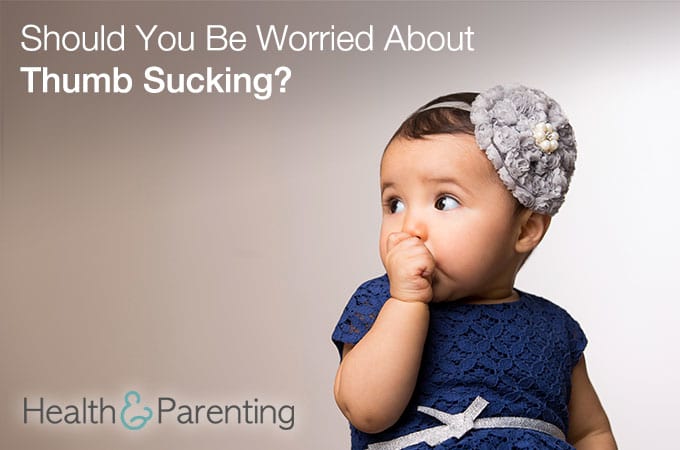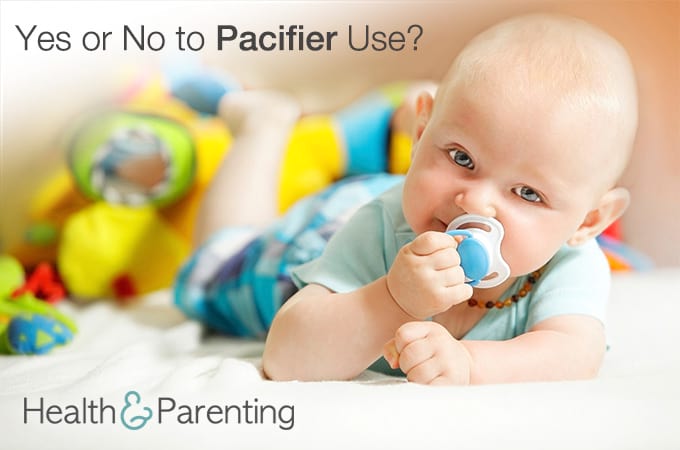Before we become parents, we all have a picture in our heads of what that will look like. Admit it: you went into this whole parenting thing with a few ideas about what you would and would not allow, long before you ever first peered into your baby’s eyes. On that list, perhaps you had it in your head that your baby would never use a pacifier or suck his or her thumb. Your baby wasn’t going to rely on a clutch.
Isn’t it funny how our pre-conceived ideas about parenthood tend to get thrown out the window once we’re actually in the midst of parenthood?
Okay, so maybe you didn’t care all that much about thumb sucking or pacifier use to begin with. Maybe neither was on your list of things to worry about. Or maybe you were just a little bit smug because your baby never seemed to show much interest in either. But now, your little one has found his or her thumb, and you are wondering when (or if) you should be concerned.
For now, rest assured, thumb sucking can be a completely normal habit for little ones, and it can even have some positive applications. After all, anytime a child gains the ability to self-soothe, it’s a good thing.
The thing about thumbs is, they are always there. So a child who self-soothes by sucking his or her thumb is a little one who won’t be calling out for you in the middle of the night to find a dropped toy or pacifier. Their thumb is always accessible to them. No matter what. Which makes thumb-sucking a really great way to calm themselves down or soothe themselves back to sleep.
Of course, the big concerns with thumb sucking are that it can push new teeth out and can eventually be seen as socially unacceptable. But the truth is, right now, neither should be a concern of yours. Before age 2 (and realistically, before age 4 in most cases) thumb sucking won’t likely cause any long-term damage to your child’s mouth. And no one is going to judge a baby for self-soothing with their own little thumb.
Most children stop thumb sucking on their own by age four, which is about the age when long-term damage can occur. And for those who don’t, there are various solutions you can employ to help them give up their thumb sucking habit. So for now, while your baby is still under the age of 1 especially, there is very little reason to try to curb this behavior. Which is good, because it can be difficult to keep that little thumb from finding its way to your baby’s mouth!
Written by Leah Campbell, infertility advocate, adoptive mama, writer and editor. Find me @sifinalaska on Twitter.
This information is not intended to replace the advice of a trained medical doctor. Health & Parenting Ltd disclaims any liability for the decisions you make based on this information, which is provided to you on a general informational basis only and not as a substitute for personalized medical advice. All contents copyright Health & Parenting Ltd 2016. All rights reserved.











